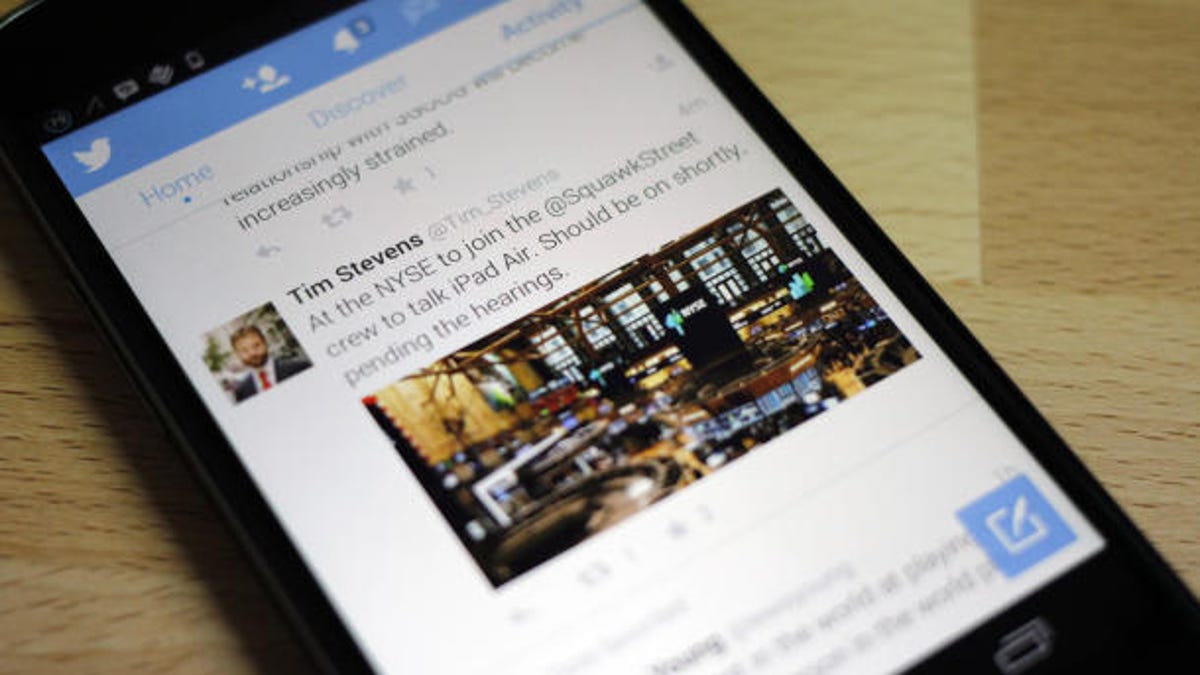Twitter a news source? Not so much
A new Pew survey shows only 16 percent of US adults use Twitter and only 8 percent use the social network for news. But these users tend to be young, educated, and wealthy.

If you're a Twitter user, you're in the minority. If you get your news on the social network, you're in even a smaller minority.
Pew Research Center released a new study on Monday that shows only 16 percent of US adults use Twitter and only 8 percent get news on the site. This is compared with Facebook, where 30 percent of US adults get their news.
For its survey, Pew interviewed more than 5,000 US adults, which included 736 Twitter users and 3,268 Facebook users, and analyzed Twitter conversations around major news events.
While Twitter doesn't share a huge portion of the user market, it does have tried-and-true fans -- the majority of whom tend to be young, educated, and rich. Nearly half of Twitter news consumers are between 18 and 29 years old, 40 percent have at least a bachelor's degree, and 48 percent are likely to earn more than $75,000 a year.
What's more, Twitter users who get their news on the site tend to be more mobile than other US users. Of Twitter news consumers, 85 percent get at least some of their news on their smartphones or tablets. For all US residents, only 40 percent of people use their mobile device for news.
To study how Twitter users consume the news, Pew analyzed tweet conversations around 10 major news events, including the opening night of the summer Olympics, the Newtown, Conn. school shootings, and the Supreme Court hearings on same-sex marriage.
From this analysis, Pew discovered three predominant themes. First, the central function of Twitter is to pass along information as stories develop. Second, sentiment about news events shift and evolve; for example, support for same-sex marriage went from 32 percent to 43 percent after the Supreme Court hearings on the topic. Third, sentiment among Twitter users often doesn't match that of the general population.
As Twitter readies for its initial public offering expected this month, users' experience on the social network is sure to change. Once the company goes public, it will have to balance the tension between building a service that people love and pleasing Wall Street.

